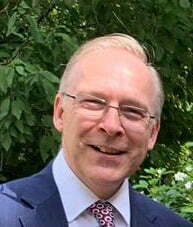In March 2024 I presented a poster at an Institute of Education Centre for Doctoral Education Poster Conference. You are welcome to view the poster (PDF, 4MB) here: Poster March 2024.
The title of my poster (and indeed my thesis working title) was: Perceptions of headteachers on their role in governance in a Church of England multi academy trust.
Abstract
Just under half of all state schools in England are academies with a drive from the Department for Education that the remaining schools (almost 11,000) join multi academy trusts (MATs). Governance of academies differs from that of maintained schools, with accountability resting with a board of volunteer trustees. Whilst most trusts continue to have some governance function at school level (although not required), this thesis considers the role headteachers play in a Church of England MAT of 22 academies. Using semi-structured (focused) interviews and a range of other devices to ensure validity in my qualitative research, I will be contributing to an under researched area. An added dimension is that of positionality and power relationships, because of my senior role within the MAT in this case study, which is the reason for sharing my work with the doctoral community at this stage in my research, as I begin data collection.
My poster is divided into sections, each described below. This is an insight into my thesis too.
Background
Back in 2000, under ‘New Labour’, the Learning and Skills Act 2000 introduced City Academies. The first of these opened in 2002. These were for failing schools and sponsors had to contribute to the academy. Under the Academies Act 2010, schools graded good and outstanding could choose to become an academy, either on their own (within a single academy trust – or SAT), or join a multi academy trust (MAT). The requirement for sponsorship had gone. The DfE could force schools with a poor Ofsted judgement to become an academy and be run by a successful MAT – these academies are now known as sponsored academies.


As of 1st January 2024 there were 2,648 sponsored academies, 7,264 converter academies and 767 other types of academy (Free Schools, Studio Schools and University Technical Colleges), a total of 10,679. This is just under half (now 49.4%, up from 47.4 per cent in May 2023) of all schools in England.
Growth of academies 2010 – 2023. ‘Other’ represents free schools, studio schools and UTCs. (Based on Male, 2022, p.5, updated with latest figures from Department for Education, 2024)
Context: Around 7% of students go to independent schools; whilst about 1% are educated otherwise (usually at home). Of the remainder about 50% now attend academies. Nearly 70% of secondary schools are academies, whilst only about 40% or primaries.
Governance: All state-maintained schools must have a governing body, although some are shared. There is a different model of governance for single academy trusts (SATs) and multi academy trusts (MATs), that have a trust board. There is flexibility in how governance in MATs is structured and therefore no consistent model of delegation across England. Trusts are not required to have a governing body in each academy, although most do.
Research questions
My main research question is:
How do headteachers, as agents or stewards, ensure effective governance of their school?
There are three further questions:
How do the CEO and headteachers see their relationship with the Trust Board?
What influence do headteachers have over governance?
How does each school’s vision align with that of the MAT?
Methods
These questions are best answered using qualitative research, particularly using focused interviews (semi-structured). This is a case study in a mixed MAT of 21 Church schools and one community school (22 schools) with 16 headteachers. Some heads oversee more than one school.
The relevance of ‘Church of England’ in the thesis working title is that there is an influence on governance in this trust from the Diocese, that would otherwise not be present in a typical MAT.
My participants are from a purposive sample of 16 headteachers, plus three senior employees from the central team in the MAT and two trustee directors, chosen to ensure representation at the different levels of governance within the trust.
Positionality
As reflexive research, my positionality is of particular significance in this thesis. I have a senior role within the trust and line manage the headteachers. This relationship to my participants will affect my outcomes, but this adds an exciting element to my research. Sood (2016) suggests an advantage, as I am trusted by my participants and have a good relationship, but I am likely to influence the research outcomes.
Mitigations include distancing myself from the familiarity of the community, balancing my role in the MAT with that of researcher, and navigating the dynamic of organisational politics (Teusner, 2022).
My conscious actions are:
- Avoiding discussing my research outside of the interviews, and avoiding discussing ‘work’ during research.
- Inviting participants to keep journals/diaries over a 12-week period to record governance interactions, with no input from me.
- Giving participants the opportunity to confirm my analysis of their input – did they actually say that, and did they mean what I have written?
- Keeping my own research journal.
- Organising group interviews (focus groups) after a 12-week period and posing questions that the group discusses, rather than direct one-to-one interviews.
I welcome any feedback or suggestions on my research.
References
Department for Education. (2024). Open academies, free schools, studio schools and UTCs. Available at: https://www.gov.uk/government/publications/openacademies-and-academy-projects-in-development
Male, T. (2022). ‘The rise and rise of academy trusts: continuing changes to the state-funded school system in England’. School Leadership & Management, pp. 121. doi: 10.1080/13632434.2022.2095996.
Sood, K. (2016). ‘Writing the proposal’. in Palaiologou, I., Needham, D., and Male, T. (eds) Doing research in education: Theory and practice. London: SAGE, pp. 99–117.
Teusner, A. (2022). ‘Qualitative Insider Research’. in Atkinson, P., Delamont, S., Cernat, A., Sakshaug, J. W., and Williams, R. A. (eds) SAGE Research Methods Foundations. 1 Oliver’s Yard, 55 City Road, London EC1Y 1SP United Kingdom: SAGE Publications Ltd. doi: 10.4135/9781526421036845676.





0 Comments